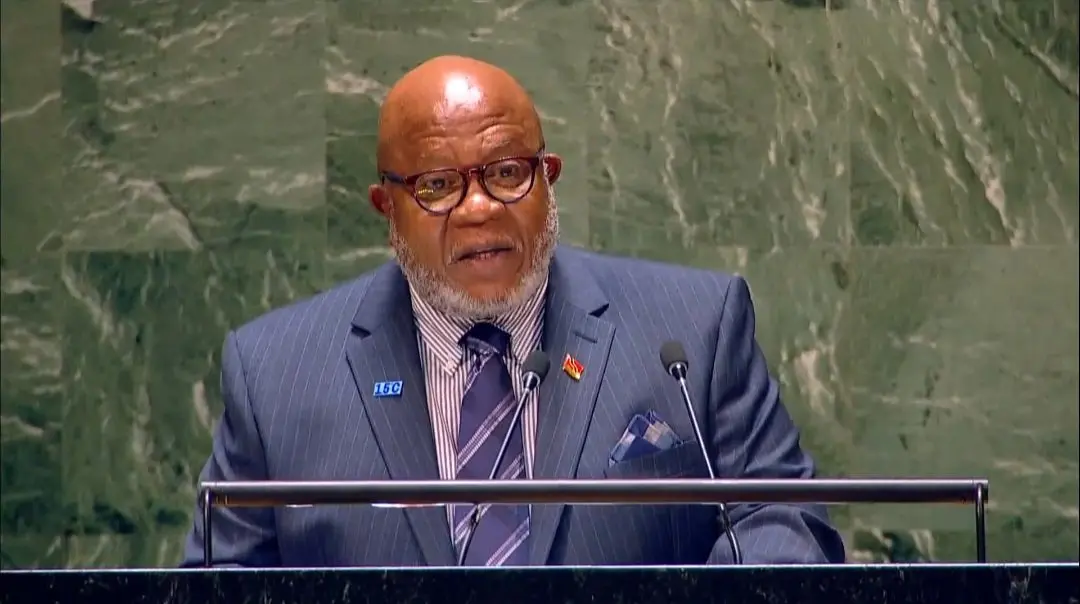Dennis Francis, the President of the United Nations General Assembly, has said that the top priorities during the High-Level Week are ending the conflict in Ukraine, improving climate action, and intensifying endeavours to attain the Sustainable Development Goals.
While speaking to the press in New York on Thursday, Francis shared insights into the outcomes of the 78th general debate, where Heads of State and Government from the 193 UN member states participated. The debate came to a close on Tuesday.
He pointed out that the 78th session of the UN General Assembly was unique in that it was the first time the assembly met in person since the COVID-19 pandemic began in March 2020.
Francis said 189 leaders spoke from the rostrum, ‘an impressive increase indeed over recent years.’ Twenty-one were women, or one less than the previous year.
The Assembly President initiated the second annual platform for women leaders at the start of the High-Level Week, spanning from September 19 to 26. The primary emphasis was on women’s significance in the pursuit of the SDGs, with the overarching goal of achieving a fairer, more sustainable world by 2030.
Read also: UNGA78: Tinubu, Embalo Set To Join Foreign Investment Forum
‘These leaders showcased why it is so important to recognise and elevate the talents and perspectives of half of humanity in tackling today’s challenges,’ he said.
The general debate was marked by calls for resolving conflicts in Africa, the Middle East and Ukraine.
‘I was unequivocal when speaking to the membership that we need peace, Ukraine needs peace, and that this war must stop, must end,’ he said.
Francis further stated that the buzz for stronger climate action also resonated across the General Assembly Hall, in his meetings with leaders, and at two high-level meetings on climate mobility and sea level rise.
On the other hand, the SDG Summit and resulting political proclamation marked the beginning of a new phase of revved improvement to achieve the 17 goals by their deadline.
In addition to this, other top-level assemblies addressed Financing for Development and healthcare issues. Significantly, leaders provided their endorsement for the UN’s first-ever political declaration on pandemic prevention, preparedness, and response.
Governments also reaffirmed the right to universal health coverage, set targets to eradicate tuberculosis by the end of the decade, and underscored the need for ‘serious action’ to snuff out nuclear weapons which he described as ‘a moral duty of our time’.
Francis also replied to journalists’ inquiries on other issues of global concern filed during the general debate.
These comprised of reform for the UN Security Council, whose five permanent members – China, France, Russia, the United Kingdom and the United States – have the veto right, permitting them to shut off any resolution or decision.
During a Council meeting hosted during the High-Level Week, Ukrainian President Volodymyr Zelenskyy proposed that the General Assembly should be authorised to cancel out vetoes.
Francis noted that the Council was created for a world that no longer exists and reform is an arduous task.
‘We do need to rethink the structure of the Security Council so that it more aptly represents current realities of global politics. That is going to be a process that will continue to engage the house for some time,’ he said.
In response to a query about his belief in world leaders’ dedication to achieving the SDGs by 2030, the President of the General Assembly redirected attention to the media and its significant societal role.
‘These commitments were made in public in front of you guys, who influence public opinion,’ he said.
‘How will you react if you detect over time that commitments made have not been honoured?’
While being optimistic that the pledges will be actualised, he noted that ‘at the end of the day, the proof of the pudding, as they say, is in the eating.’

